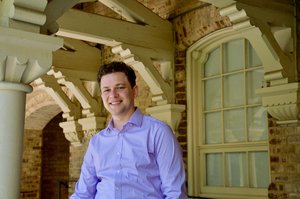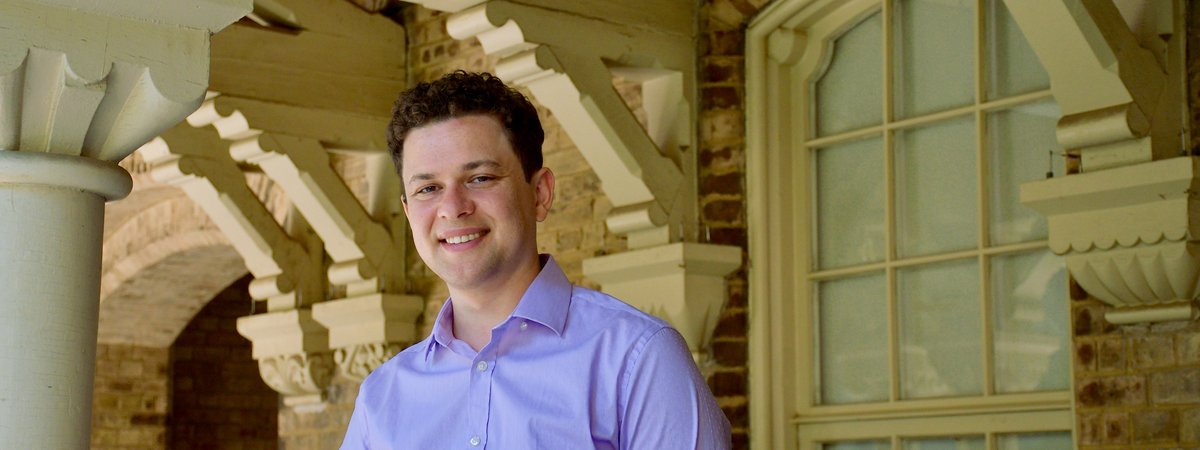Assistant Professor, Quantum Information Science

Dr. Boris Braverman joined the Department on August 15,2023.
Welcome to U of T Physics Dr. Braverman!
Why did you decide to pursue physics? What was your inspiration?
There are many engineers, mathematicians, and physicists in my family and I had a lot of early exposure to these fields. My older brother participated in math contests, so I started doing them too. But, what really got me excited was a physics textbook that my father gave me one summer in high school. I was immediately drawn in by the elegance of describing nature using the language of mathematics, and being able to use these abstract tools to predict the very real behaviour of systems in the physical world.
Can you tell us a little bit about your educational background?
I did my undergraduate degree in physics at the University of Toronto. I then did my PhD at MIT, followed by a postdoctoral fellowship at the University of Ottawa.
What was the topic of your PhD thesis and why?
For my PhD, I worked on implementing an optical lattice clock whose precision is enhanced by quantum entanglement. Atomic clocks are among the most precise measurement tools ever constructed by humanity, but there is always room to make them even better. Precise clocks lead to not only practical applications such as GPS navigation, but also they help advance and precipitate other scientific discoveries. For atomic clocks that use inherently quantum objects to measure time, quantum noise is one of the limiting factors in their precision. Entanglement is a uniquely quantum-mechanical behaviour that induces atom-atom correlations and suppresses the quantum noise during their observation. Part of the excitement and challenge in my PhD project was to design and build a new physics experiment from conception to implementation, which taught me many scientific and engineering skills.
Please share your research background and why did you choose this field specifically.
One of my first research projects during my undergraduate studies was the experimental observations of Bohm trajectories for photons. Trajectories of quantum particles are technically impossible to measure, and yet here we had an experiment where we could operationalize and observe these trajectories. This project got me very interested in quantum measurement, and trying to understand what these measurements mean. I continued this journey of exploring quantum measurement during my PhD at MIT, where I built an experiment where we showed that quantum effects can be used to make an optical atomic clock more precise. During my postdoc, I learned to use the spatial structure of light for quantum communication and quantum imaging, all of which tie back to questions of measurement in the context of quantum theory.
I chose to work in AMO (Atomic, Molecular, and Optical physics) because it lies at the intersection of theory and experiment, pure science and applied technology, and classical and quantum physics. It's a real privilege to work in a field where the same tools can be used not only as precision clocks, magnetometers, and gyroscopes, but also for answering basic physics questions like searching for new fundamental forces and particles, or looking for fluctuations in the universe's constants. But the real reason is that AMO physics is an incredibly fun field to work in, and I think that it is one of the few fields of physics where one can be good at both theoretical and experimental work. As well, atomic physics experiments are lab-scale and are often accomplished by relatively small teams, where each person can both have a significant role and a sense of teamwork and camaraderie with their colleagues.
What are you looking forward to about being in Toronto?
Toronto is where I did my undergraduate studies, so in many ways it is a homecoming for me. I look forward to rediscovering all of my old favorite restaurants, and trying all the new places that have opened in the decade I've been away. I also look forward to finding all the delightful and surprising nooks in the UofT campus where one can spend a couple of hours reading or discussing ideas with colleagues.

